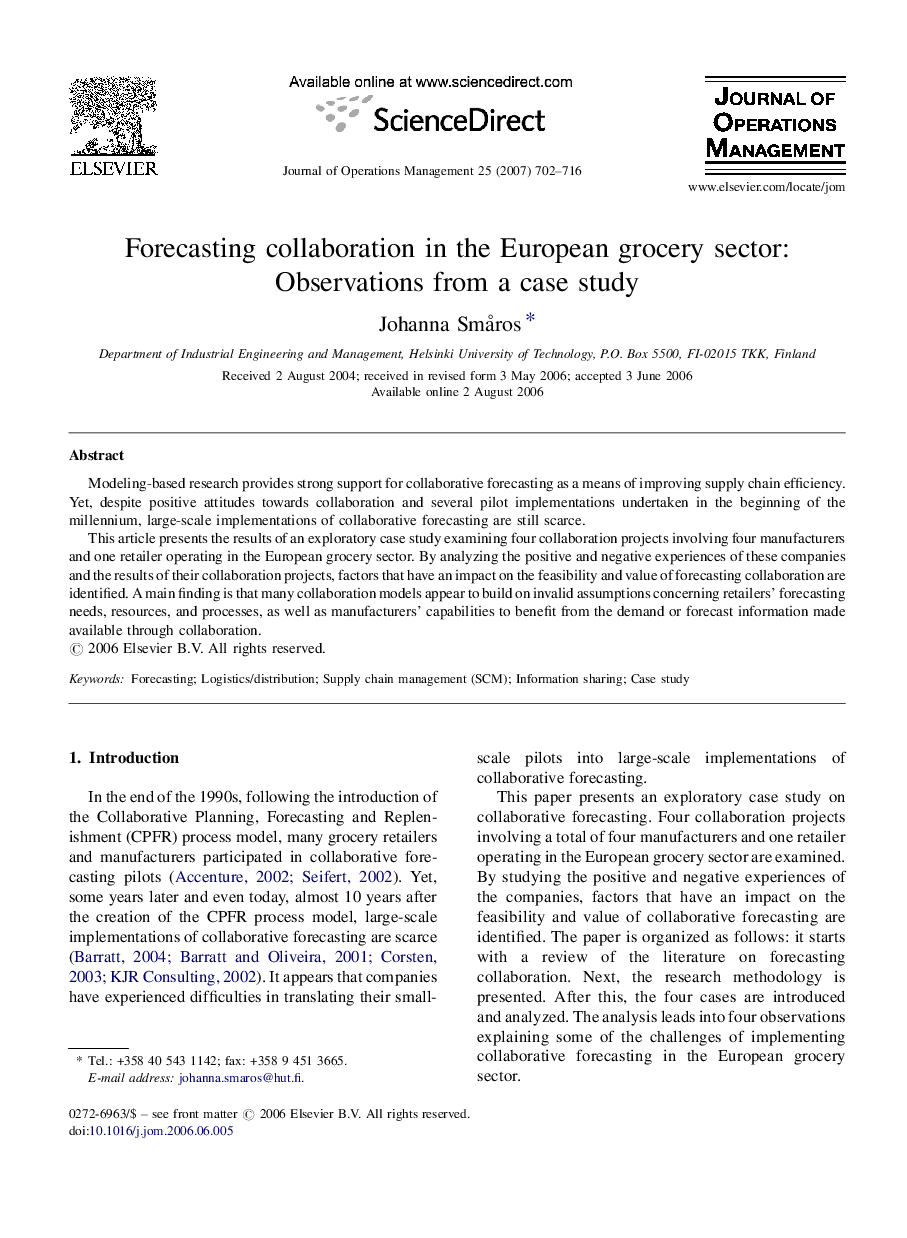| Article ID | Journal | Published Year | Pages | File Type |
|---|---|---|---|---|
| 1032081 | Journal of Operations Management | 2007 | 15 Pages |
Modeling-based research provides strong support for collaborative forecasting as a means of improving supply chain efficiency. Yet, despite positive attitudes towards collaboration and several pilot implementations undertaken in the beginning of the millennium, large-scale implementations of collaborative forecasting are still scarce.This article presents the results of an exploratory case study examining four collaboration projects involving four manufacturers and one retailer operating in the European grocery sector. By analyzing the positive and negative experiences of these companies and the results of their collaboration projects, factors that have an impact on the feasibility and value of forecasting collaboration are identified. A main finding is that many collaboration models appear to build on invalid assumptions concerning retailers’ forecasting needs, resources, and processes, as well as manufacturers’ capabilities to benefit from the demand or forecast information made available through collaboration.
